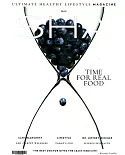封面故事
Taming the ‘What Ifs’
We may not be able to run away from our worries, but how do we keep them from running our lives? In a bid to manage the agonising, we asked a handful of experts for tips on how to get a grip
Defining Distress We often use the terms ‘worry’, ‘stress’ and ‘anxiety’ interchangeably, but they aren’t the same. Each has unique qualities and identifying which one is plaguing us will
help us better address it. Psychologist Kristin Buhr, co-author of The Worry Workbook, breaks down the differences. Worry is a negative thought you have about an uncertainty in life. Worries
tend to focus on the assumption that something negative will come from future events or from the outcomes of occurrences that happened in the past. Stress involves your reaction to pressures
placed on you. You feel spread thin or are overwhelmed because life is demanding too much of your limited time, energy or some other personal resource. While worries are thoughts, stress is a
feeling. Anxiety is your mental and physiological response to a perceived…
馴服“如果”
我們可能無法擺脫憂慮,但如何才能讓它們不影響我們的生活呢?為了控制這種痛苦,我們向一些專家請教了一些如何控制的技巧
我們經常把“擔心”、“壓力”和“焦慮”互換使用,但它們並不相同。每一種都有其獨特的品質,而找出困擾我們的是哪一種,將有助於我們更好地解決它。《憂慮工作手冊》的合著者、心理學家克里斯汀•布爾(Kristin
Buhr)分析了這些差異。憂慮是你對生活中的不確定性的消極想法。擔憂往往集中在這樣一種假設上,即未來的事件或過去發生的事情的結果會帶來負面影響。壓力包括你對壓力的反應。你會感到壓力山大,因為生活佔用了你有限的時間、精力或其他個人資源。憂慮是一種想法,壓力是一種感覺。焦慮是你對一個感知到的……
網路書店
類別
折扣
價格
-
新書$158





















